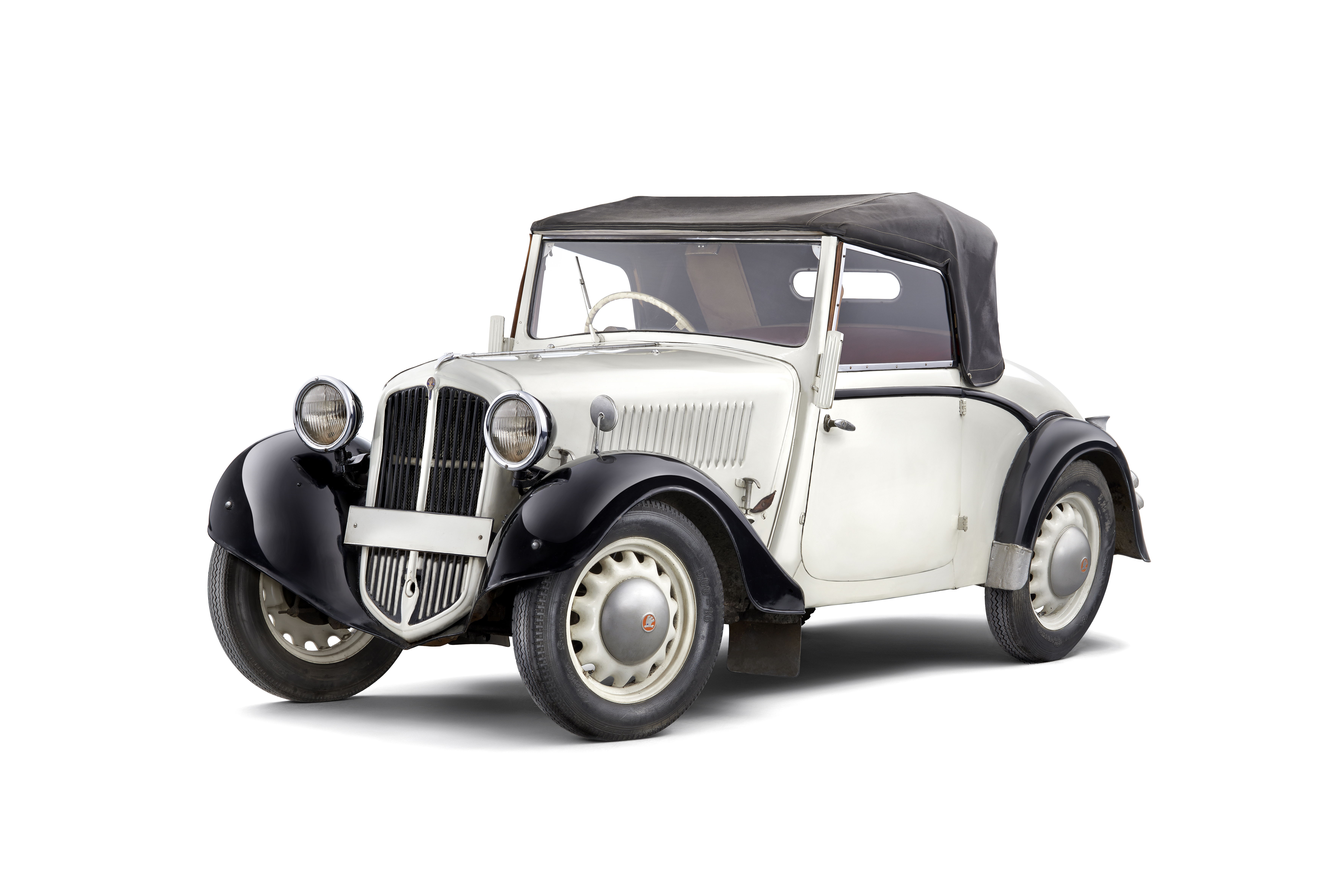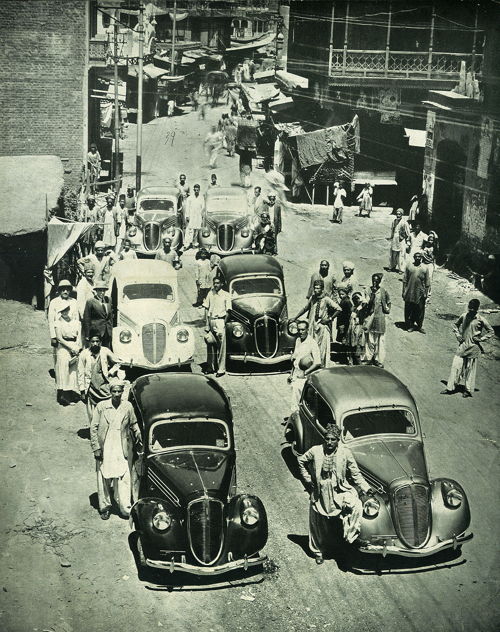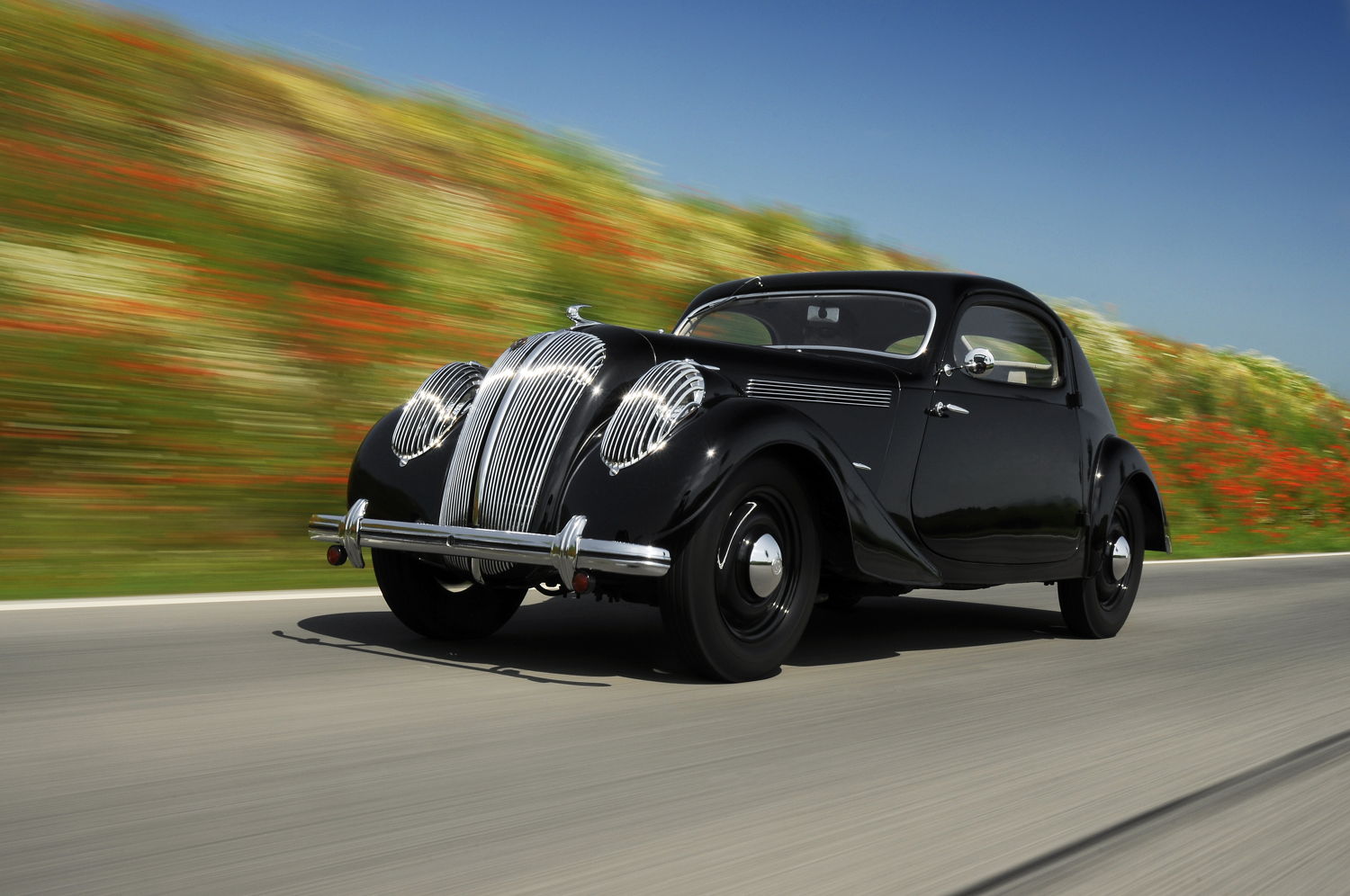The ŠKODA POPULAR celebrates its 85th anniversary

› The keys to the first ŠKODA 418 POPULAR were handed over exactly 85 years ago
› Progressive construction: lighter central tube frame, all-round independent suspension
and transaxle drive concept
› Thanks to the POPULAR and the larger models RAPID, FAVORIT and SUPERB, ŠKODA
AUTO became the largest automobile manufacturer in Czechoslovakia
Mladá Boleslav, 6 March 2019 – The legendary ŠKODA POPULAR’s career began 85 years
ago, on 6 March 1934. The first copy went to Zlín to the world famous shoe manufacturer
Baťa. Customers were won over by the POPULAR’s modern construction and excellent
value for money. The model celebrated numerous sporting successes, found a ready market
and was exported to dozens of countries.
In the mid-1920s, ŠKODA launched a generous investment initiative that enabled efficient mass
production, including assembly line production and, as a result, an impressive model campaign. In
April 1933, the ŠKODA 420 STANDARD, a direct response to the economic crisis, served as a
pioneer of the new passenger car generation. Compared to its predecessor, the Š 422, it weighed
around 250 kilograms less. At the same time, its four-cylinder four-stroke engine with a
displacement of 995 cm3 and output of 14.7 kW (20 hp) took advantage of the tax benefits at the
time. The price was 29,800 crowns (Kč).
ŠKODA developed the POPULAR on the back of the positive experience with the 420 STANDARD.
The entry-level version – the Š 418 POPULAR – offered excellent handling, even on bad roads,
thanks to its central tube frame, all-round independent suspension and precise rack-and-pinion
steering. Also, the weight distribution was favourable because the transmission had been moved to
the rear axle to form a transaxle system. The 902 cm3 four-cylinder engine produced 13 kW (18 hp)
and consumed only seven litres per 100 km. The first prototype was made on 18 January 1934,
followed another 19 units of the test series at the end of February.
On Tuesday, 6 March 1934, the first ŠKODA POPULAR changed hands: it was acquired by the
internationally renowned shoe and tyre manufacturer Baťa from Zlín, which at the time was a
supplier to ŠKODA. Company President Jan Antonín Baťa is said to have received the vehicle in
person. One month later, on 9 April, Baťa ordered 30 more POPULARs – semi-convertibles and
roadsters – from Ing. Karel Hrdlička, the automobile plant director. Given the positive experience
with the modern and economical car, the company later bought several dozen additional copies of
the ŠKODA POPULAR, which was available starting at 17,800 Kč, including a closed-top
commercial vehicle body.
The ŠKODA POPULAR quickly grew in popularity among motorists. Celebrities were often seen
behind the wheel, including actress Olga Scheinpflugová and the Czech national football team, who
were the runners up in the 1934 World Championship with goalkeeper and captain František
Plánička.
An impressive long-distance journey highlighted the virtues of the ŠKODA POPULAR, one of the
most affordable automobiles on the market: four vehicles travelled from Prague by land to Calcutta,
11,000 km away in what was then British India; on the way home, the quartet passed through
Bombay. In Trieste, the tour group left the steamboat and returned via Italy, Yugoslavia and Austria,
returning to their homeland to complete the 15,000-kilometre trip.
The sharply rising production figures demonstrate how well received the POPULAR was among
customers in Czechoslovakia and dozens of countries around the world; the production volume
almost doubled between 1934 and 1935. From 1935 to 1939, almost 6,000 copies were exported –
including to China for the first time in 1935, which began the trading relationship between ŠKODA
AUTO and the Middle Kingdom. In 1936, thanks to the POPULAR series, the automaker shot to
number one in the domestic vehicle market, a position that ŠKODA maintains to this day.
The POPULAR also enjoyed numerous successes on the international motorsport scene, including
taking second place in the class up to 1,500 cm3 at the Monte Carlo Rally. ŠKODA took this triumph
as an opportunity to release a special series – the coupé and roadster versions POPULAR MONTE
CARLO appealed especially to more discerning customers.
Customers continued to show interest in ŠKODA’s smallest vehicle. As early as 1934, a more
powerful engine with 995 cm3 and 14.7 kW (20 hp) went into series production, with further
innovations including OHV valve control and safety glass windscreen following in the summer of
1937. A 1,089-cm3 four-cylinder with 22 kW (30 hp) debuted in the autumn of the same year. In
1938, the ŠKODA POPULAR 1100 OHV received hydraulic drum brakes, while the lower-priced
POPULAR 995 ‘Liduška’ four-seater with a closed body and 16 kW (22 hp) was available from
17,300 Kč.
The POPULAR’s career was interrupted abruptly by the Second World War. Nevertheless, between
1934 and 1946, more than 21,000 units of the model series rolled off the production line, with
around 250 units built after the war. The ŠKODA POPULAR 1101 served as a springboard for
restarting production. This model was based on prototypes that had been designed in the summer
of 1939. Its wheelbase was extended by 40 millimetres, with the gearbox moved back to the
engine, forming a single unit with the clutch. The low consumption of 8.5 litres per 100 km remained
unchanged despite the increase in power output to 23.5 kW (32 hp). Customers first learned of the
modernised design in 1946 with the name ŠKODA 1101, but the model gained greater prominence
under its nickname ‘Tudor’.
 In 1934, its first year of production, around 900 ŠKODA POPULARs were built with 0.9- and 1.0-litre engines. The semi-convertible and roaster versions were particularly popular
In 1934, its first year of production, around 900 ŠKODA POPULARs were built with 0.9- and 1.0-litre engines. The semi-convertible and roaster versions were particularly popular Between 1934 and 1946, more than 21,000 units of the model series rolled off the production line, with around 250 units built after the war. From 1935 to 1939, almost 6,000 POPULARs were exported.
Between 1934 and 1946, more than 21,000 units of the model series rolled off the production line, with around 250 units built after the war. From 1935 to 1939, almost 6,000 POPULARs were exported.